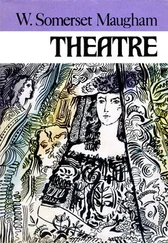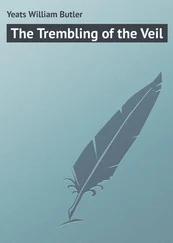W. MAUGHAM - THE TREMBLING OF A LEAF
Здесь есть возможность читать онлайн «W. MAUGHAM - THE TREMBLING OF A LEAF» весь текст электронной книги совершенно бесплатно (целиком полную версию без сокращений). В некоторых случаях можно слушать аудио, скачать через торрент в формате fb2 и присутствует краткое содержание. Жанр: Фантастика и фэнтези, на английском языке. Описание произведения, (предисловие) а так же отзывы посетителей доступны на портале библиотеки ЛибКат.
- Название:THE TREMBLING OF A LEAF
- Автор:
- Жанр:
- Год:неизвестен
- ISBN:нет данных
- Рейтинг книги:5 / 5. Голосов: 1
-
Избранное:Добавить в избранное
- Отзывы:
-
Ваша оценка:
- 100
- 1
- 2
- 3
- 4
- 5
THE TREMBLING OF A LEAF: краткое содержание, описание и аннотация
Предлагаем к чтению аннотацию, описание, краткое содержание или предисловие (зависит от того, что написал сам автор книги «THE TREMBLING OF A LEAF»). Если вы не нашли необходимую информацию о книге — напишите в комментариях, мы постараемся отыскать её.
THE TREMBLING OF A LEAF — читать онлайн бесплатно полную книгу (весь текст) целиком
Ниже представлен текст книги, разбитый по страницам. Система сохранения места последней прочитанной страницы, позволяет с удобством читать онлайн бесплатно книгу «THE TREMBLING OF A LEAF», без необходимости каждый раз заново искать на чём Вы остановились. Поставьте закладку, и сможете в любой момент перейти на страницу, на которой закончили чтение.
Интервал:
Закладка:
He was a character, and his reminiscences of a varied life, whether true or not, made him worth listening to, so that when Lawson strolled in I was inclined to resent the interruption. Although not midday, it was clear that he had had enough to drink, and it was without enthusiasm that I yielded to his persistence and accepted his offer of another cocktail. I knew already that Chaplin's head was weak. The next round which in common politeness I should be forced to order would be enough to make him lively, and then Mrs Chaplin would give me black looks.
Nor was there anything attractive in Lawson's appearance. He was a little thin man, with a long, sallow face and a narrow, weak chin, a prominent nose, large and bony, and great shaggy black eyebrows. They gave him a peculiar look. His eyes, very large and very dark, were magnificent. He was jolly, but his jollity did not seem to me sincere; it was on the surface, a mask which he wore to deceive the world, and I suspected that it concealed a mean nature. He was plainly anxious to be thought a "good sport" and he was hail-fellow-well-met; but, I do not know why, I felt that he was cunning and shifty. He talked a great deal in a raucous voice, and he and Chaplin capped one another's stories of beanos which had become legendary, stories of "wet" nights at the English Club, of shooting expeditions where an incredible amount of whisky had been consumed, and of jaunts to Sydney of which their pride was that they could remember nothing from the time they landed till the time they sailed. A pair of drunken swine. But even in their intoxication, for by now after four cocktails each, neither was sober, there was a great difference between Chaplin, rough and vulgar, and Lawson: Lawson might be drunk, but he was certainly a gentleman.
At last he got out of his chair, a little unsteadily.
"Well, I'll be getting along home," he said. "See you before dinner."
"Missus all right?" said Chaplin.
"Yes."
He went out. There was a peculiar note in the monosyllable of his answer which made me look up.
"Good chap," said Chaplin flatly, as Lawson went out of the door into the sunshine. "One of the best. Pity he drinks."
This from Chaplin was an observation not without humour.
"And when he's drunk he wants to fight people."
"Is he often drunk?"
"Dead drunk, three or four days a week. It's the island done it, and Ethel."
"Who's Ethel?"
"Ethel's his wife. Married a half-caste. Old Brevald's daughter. Took her away from here. Only thing to do. But she couldn't stand it, and now they're back again. He'll hang himself one of these days, if he don't drink himself to death before. Good chap. Nasty when he's drunk."
Chaplin belched loudly.
"I'll go and put my head under the shower. I oughtn't to have had that last cocktail. It's always the last one that does you in."
He looked uncertainly at the staircase as he made up his mind to go to the cubby hole in which was the shower, and then with unnatural seriousness got up.
"Pay you to cultivate Lawson," he said. "A well read chap. You'd be surprised when he's sober. Clever too. Worth talking to."
Chaplin had told me the whole story in these few speeches.
When I came in towards evening from a ride along the seashore Lawson was again in the hotel. He was heavily sunk in one of the cane chairs in the lounge and he looked at me with glassy eyes. It was plain that he had been drinking all the afternoon. He was torpid, and the look on his face was sullen and vindictive. His glance rested on me for a moment, but I could see that he did not recognise me. Two or three other men were sitting there, shaking dice, and they took no notice of him. His condition was evidently too usual to attract attention. I sat down and began to play.
"You're a damned sociable lot," said Lawson suddenly.
He got out of his chair and waddled with bent knees towards the door. I do not know whether the spectacle was more ridiculous than revolting. When he had gone one of the men sniggered.
"Lawson's fairly soused to-day," he said.
"If I couldn't carry my liquor better than that," said another, "I'd climb on the waggon and stay there."
Who would have thought that this wretched object was in his way a romantic figure or that his life had in it those elements of pity and terror which the theorist tells us are necessary to achieve the effect of tragedy?
I did not see him again for two or three days.
I was sitting one evening on the first floor of the hotel on a verandah that overlooked the street when Lawson came up and sank into a chair beside me. He was quite sober. He made a casual remark and then, when I had replied somewhat indifferently, added with a laugh which had in it an apologetic tone:
"I was devilish soused the other day."
I did not answer. There was really nothing to say. I pulled away at my pipe in the vain hope of keeping the mosquitoes away, and looked at the natives going home from their work. They walked with long steps, slowly, with care and dignity, and the soft patter of their naked feet was strange to hear. Their dark hair, curling or straight, was often white with lime, and then they had a look of extraordinary distinction. They were tall and finely built. Then a gang of Solomon Islanders, indentured labourers, passed by, singing; they were shorter and slighter than the Samoans, coal black with great heads of fuzzy hair dyed red. Now and then a white man drove past in his buggy or rode into the hotel yard. In the lagoon two or three schooners reflected their grace in the tranquil water.
"I don't know what there is to do in a place like this except to get soused," said Lawson at last.
"Don't you like Samoa?" I asked casually, for something to say.
"It's pretty, isn't it?"
The word he chose seemed so inadequate to describe the unimaginable beauty of the island, that I smiled, and smiling I turned to look at him. I was startled by the expression in those fine sombre eyes of his, an expression of intolerable anguish; they betrayed a tragic depth of emotion of which I should never have thought him capable. But the expression passed away and he smiled. His smile was simple and a little na #239;ve. It changed his face so that I wavered in my first feeling of aversion from him.
"I was all over the place when I first came out," he said.
He was silent for a moment.
"I went away for good about three years ago, but I came back." He hesitated. "My wife wanted to come back. She was born here, you know."
"Oh, yes."
He was silent again, and then hazarded a remark about Robert Louis Stevenson. He asked me if I had been up to Vailima. For some reason he was making an effort to be agreeable to me. He began to talk of Stevenson's books, and presently the conversation drifted to London.
"I suppose Covent Garden's still going strong," he said. "I think I miss the opera as much as anything here. Have you seen Tristan and Isolde ?"
He asked me the question as though the answer were really important to him, and when I said, a little casually I daresay, that I had, he seemed pleased. He began to speak of Wagner, not as a musician, but as the plain man who received from him an emotional satisfaction that he could not analyse.
"I suppose Bayreuth was the place to go really," he said. "I never had the money, worse luck. But of course one might do worse than Covent Garden, all the lights and the women dressed up to the nines, and the music. The first act of the Walk #252;re's all right, isn't it? And the end of Tristan . Golly!"
His eyes were flashing now and his face was lit up so that he hardly seemed the same man. There was a flush on his sallow, thin cheeks, and I forgot that his voice was harsh and unpleasant. There was even a certain charm about him.
"By George, I'd like to be in London to-night. Do you know the Pall Mall restaurant? I used to go there a lot. Piccadilly Circus with the shops all lit up, and the crowd. I think it's stunning to stand there and watch the buses and taxis streaming along as though they'd never stop. And I like the Strand too. What are those lines about God and Charing Cross?"
Читать дальшеИнтервал:
Закладка:
Похожие книги на «THE TREMBLING OF A LEAF»
Представляем Вашему вниманию похожие книги на «THE TREMBLING OF A LEAF» списком для выбора. Мы отобрали схожую по названию и смыслу литературу в надежде предоставить читателям больше вариантов отыскать новые, интересные, ещё непрочитанные произведения.
Обсуждение, отзывы о книге «THE TREMBLING OF A LEAF» и просто собственные мнения читателей. Оставьте ваши комментарии, напишите, что Вы думаете о произведении, его смысле или главных героях. Укажите что конкретно понравилось, а что нет, и почему Вы так считаете.


![О Генри - Последний лист [The Last Leaf]](/books/405335/o-genri-poslednij-list-the-last-leaf-thumb.webp)





